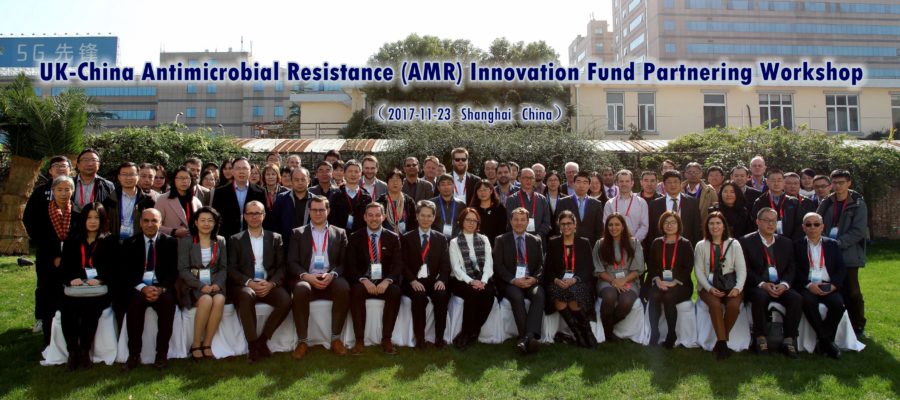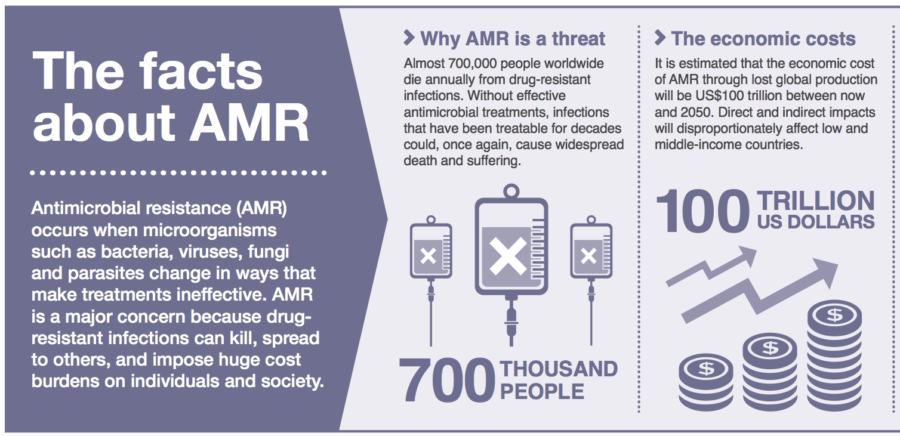18th April 2018 Shanghai
Launch of UK-China Antimicrobial resistance competition

I heard some worrying news about gonorrhoea recently.
Thankfully this wasn’t a personal diagnosis, but I read in the press that a British man has been the first to be diagnosed with a new strain of ‘super-gonorrhoea’. This strain is so far resistant to all antibiotics usually used to treat the disease.
This case illustrates the present, and growing, threat of Antimicrobial resistance (AMR). There has already been plenty written on these pages explaining what AMR is, so I won’t add to this other than to recommend this excellent infographic produced by the Department of Health and Social Care Fleming Fund team.
If AMR isn’t tackled, then imagine a future where routine operations such as hip replacements or caesarean sections risk deadly infection and illnesses such as tuberculosis and pneumonia become as feared as they were before the discovery of antibiotics.

Bacteria don’t respect national borders and so international cooperation is crucial to managing the risk of AMR and finding solutions. China is both a part of the problem and the potential solution. According to China Daily, China uses around half the antibiotics consumed worldwide. Of these, 48% in China are consumed by humans and the rest is used in food-producing animals. Estimates have suggested that AMR could cause 1 million premature deaths per year by 2050 in China alone.
On the solutions side, China has a booming life sciences industry with record investment in research and development, the emergence of cutting edge technologies and a massive supply of venture capital. The development of Traditional Chinese Medicine over more than two thousand years also provides a wealth of effective biological combinations, many still untapped by the pharmaceutical industry.
So, the launch this week of a new UK-China competition to tackle AMR is a cause for optimism. The UK Department of Health and Social Care will contribute up to £10 million to fund research and development of the best ideas, with matched funding provided by the Chinese Ministry of Science and Technology. Neither country could carry out this research on their own. This £10 million is part of a much larger amount the UK is investing globally to address AMR, including the £50 million Global AMR Innovation Fund.
Inspired by the influential O’Neill Review on AMR, this competition will fund projects addressing five areas that are key to combatting AMR. These are:
- Exploring opportunities from Traditional Chinese Medicine for the treatment and/or prevention of infectious diseases in humans and animals
- Advancing the discovery of new drugs and agents, including vaccines, to treat infections in humans and animals
- Identifying new agents to increase the feed energy conversion in livestock without using antibiotics or hormones
- Using modelling or prospective and retrospective clinical studies to maximise the effective use of existing antibiotics
- Developing new diagnostic tools for diagnosis, treatment and surveillance of bacterial infections and resistance

Last year, the Science and Innovation Network supported the UK’s Department of Health and Social Care and Innovate UK in bringing a group of UK experts to China to meet with Chinese experts. A series of workshops and site visits aimed to build links and understanding that will enable effective partnerships to flourish.
We will welcome further interest in the competition and greater cross-border collaboration. If you are working in this field or have skills to offer then please read more about the competition here. On the 2nd May there will be a partnering webinar to help form further collaborations, you can learn more about this and sign up here. And please help to spread the word, this message is the one thing we don’t mind going viral.